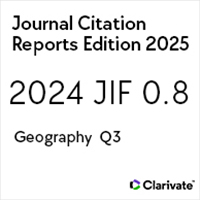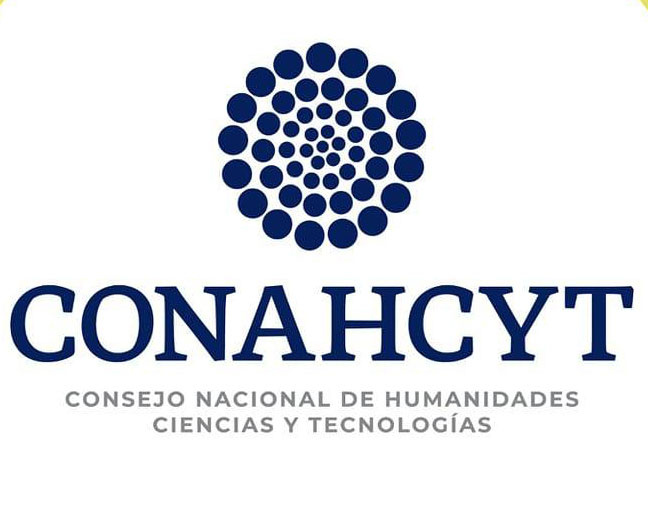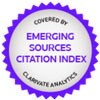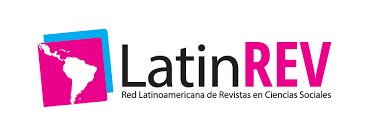Financial intermediaries in Mexico: Possible scenarios within the framework of the NAFTA
Los intermediarios financieros en México: posibles escenarios en el marco TLC
https://doi.org/10.21670/ref.2000.01.a05
Keywords:
Financial services, US financial institutions, Nonbank intermediaries, Free Trade AgreementAbstract
The possibility that NAFTA open up for the financial institutions of Canada and the United States to penetrate intro the Mexican market are quite important. Their presence may increase competitiveness in the financial sector by raising and lowering financial margins. This study seeks to analyze the guidelines of the North American Free Trade Agreement in what pertains to the financial institutions. It also takes into account the incidence that the penetration of the latter may have into the Mexican financial market, with a particular emphasis on the non-banking financial intermediaries. The article concludes that with the coming into effect of the North American Free Trade Agreement, a new internationalization phase of the Mexican financial system begins to take shape. This entails the entrance of foreign financial institutions, the majority of which are non-banking financial intermediaries enjoying greater benefits under the regulations of this agreement.Resumen
La posibilidad que abre el TLC a las instituciones financieras de Estados Unidos y Canadá para penetrar al mercado mexicano, es muy importante, su presencia puede aumentar la competencia en el sector financiero elevando la eficiencia y bajando los márgenes financieros. El objetivo del presente estudio es analizar los lineamientos del Tratado de Libre Comercio de América del Norte en lo que se refiere a las instituciones financieras y la incidencia que puede tener la penetración de éstas al mercado financiero mexicano, con un énfasis particular sobre los intermediarios financieros no bancarios. El artículo llega a la conclusión de que, con la entrada en vigor del TLC empieza una nueva fase de internacionalización del sistema financiero mexicano, que implica la entrada a instituciones financieras extranjeras, la mayor parte de las cuales son intermediarios financieros no bancarios, que gozan de mayores beneficios dentro de los reglamentos de este tratado.References
Álvarez Béjar, Alejandro (1994). “Industrial Restructuring and the Role of Mexican Labor in NAFTA”, en: U.C. Davis Law Review, vol. 27, núm. 4, Summer, pp. 897-915.
Aspe, Pedro. 1994. “La reforma financiera de México”, en: Comercio exterior, vol. 44, diciembre, pp. 1044-1047.
Boncheva, Antonina (1996). “Algunos escenarios para las finanzas mexicanas en el marco del TLCAN”, en: revista COBACH, núm. 16, agosto-septiembre. México, pp.28-31.
(1997). Los intermediarios financieros no bancarios y el crecimiento económico. Tesis doctoral, División de Posgrado,
Facultad de Economía, UNAM.
Chant, J.F. (1994). “El sector financiero en el TLC: dos más uno igual a reestructuración”, en: Globerman St. Y M. Walker (comp.), El TLC: Un enfoque trinacional, FCE/Economía Contemporánea, México.
Dávila Aldás, Francisco (1995). Del milagro a la crisis, Fontamar. México. Garrido, Celso y Tomás Peñalosa Webb. 1996. Ahorro y sistema financiero mexicano, Grijalbo, México.
Gavito Mohar, J.S. Sánchez García e I. Trigueros Legarreta (1992). “Los servicios financieros y el Acuerdo de Libre Comercio: Bancos y Casa de Bolsa”, en: Eduardo Andere y Georgina Kessel, (eds.). México y el Tratado Trilateral de Libre Comercio: Impacto sectorial, ITAM y McGrow-Hill, México.
Girón, Alicia (1994). “La banca comercial de México frente al TLC”, en: Comercio exterior, diciembre. Pp. 1068-1074.
(1995). “La banca comercial en Canadá, Estados Unidos y México”, en: Girón, A., E. Ortiz y E. Correa (comp.), Integración
financiera y TLC. Retos y perspectivas, Siglo XXI/IIE, UNAM, México, pp. 251-268.
Gutiérrez Pérez, Antonio (1991). “La globalización de las finanzas: Una nueva fase de la internacionalización del capital dinerario”, en: Economía informa, núms. 197-198, agosto-septiembre.
Gruben, W.C., J.H. Welch y J.W. Gunther (1994). “U.S.Banks Competition and the Mexican Banking System: How Much Will
NAFTA Matter?”, en: Financial Industry Studies, Federal Reserve Bank of Dallas, Septiembre.
Laderman, Elizabeth and Ramón Moreno. 1992. “NAFTA and U.S. Banking”, FRBSF Weekly Letter, núm. 92 (40), pp. 1183-1200.
Mansell Carstens, Catherine. (1995). “Servicios financieros, desarrollo económico y reforma en México”, en: Comercio exterior, vol. 45, núm. 1, pp. 3-12.
Ortiz, Édgar (1996). “Globalization of Business and Finance and Emerging Capital Market”, en: Ghosh, D. y E. Ortiz (eds.) The Global Structure of Financial Markets. An Overview, Rutledge, Londres.
Ortiz, Édgar y Noel Nava (1994). “Efficiency and Privatization of Comercial Banking in Mexico”, Proceedings. Fourth International Conference. International Trade and Finance Association.
Ortiz, Édgar y Alfred Lewis (1997). “Contestable Markets and the Mexican Banking Sector in the Context of NAFTA”, en: Ghosh, D. y E. Ortiz (eds.), The Global Structure of Financial Markets. An Overview, Rutledge, Londres.
Ortiz Martínez, G. (1994). La reforma financiera y la desincorporación bancaria, F.C.E., México.
Rubio, L. y A. De Remes (1992). ¿Cómo va a afectar a México el Tratado de Libre Comercio? FCE, México.
Suavé, Pierre y Brenda González Hermosillo (1993). Financial Services and the North American Free Trade Agreement: Implication for Canadian Financial Institutions, Bank of Canada, Ottawa.
Swary, Itzhak y Barry Topf (1993). La desregulación financiera global, FCE, México.
Walter, Ingo (1992). A Framework for the Optimum Structure of Financial Systems, Nueva York University, Salomon Center, Working Paper Series, S-92-47.































